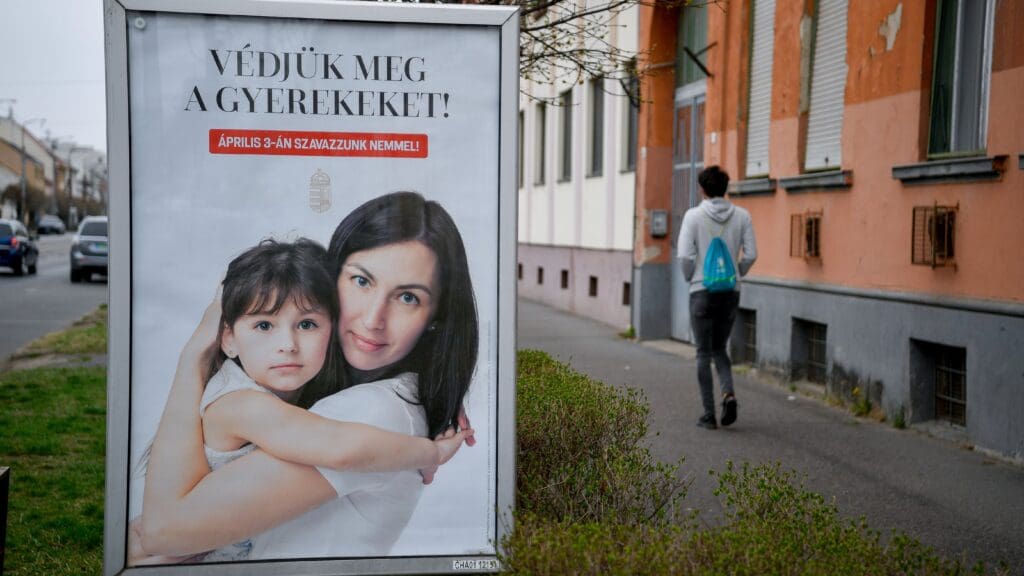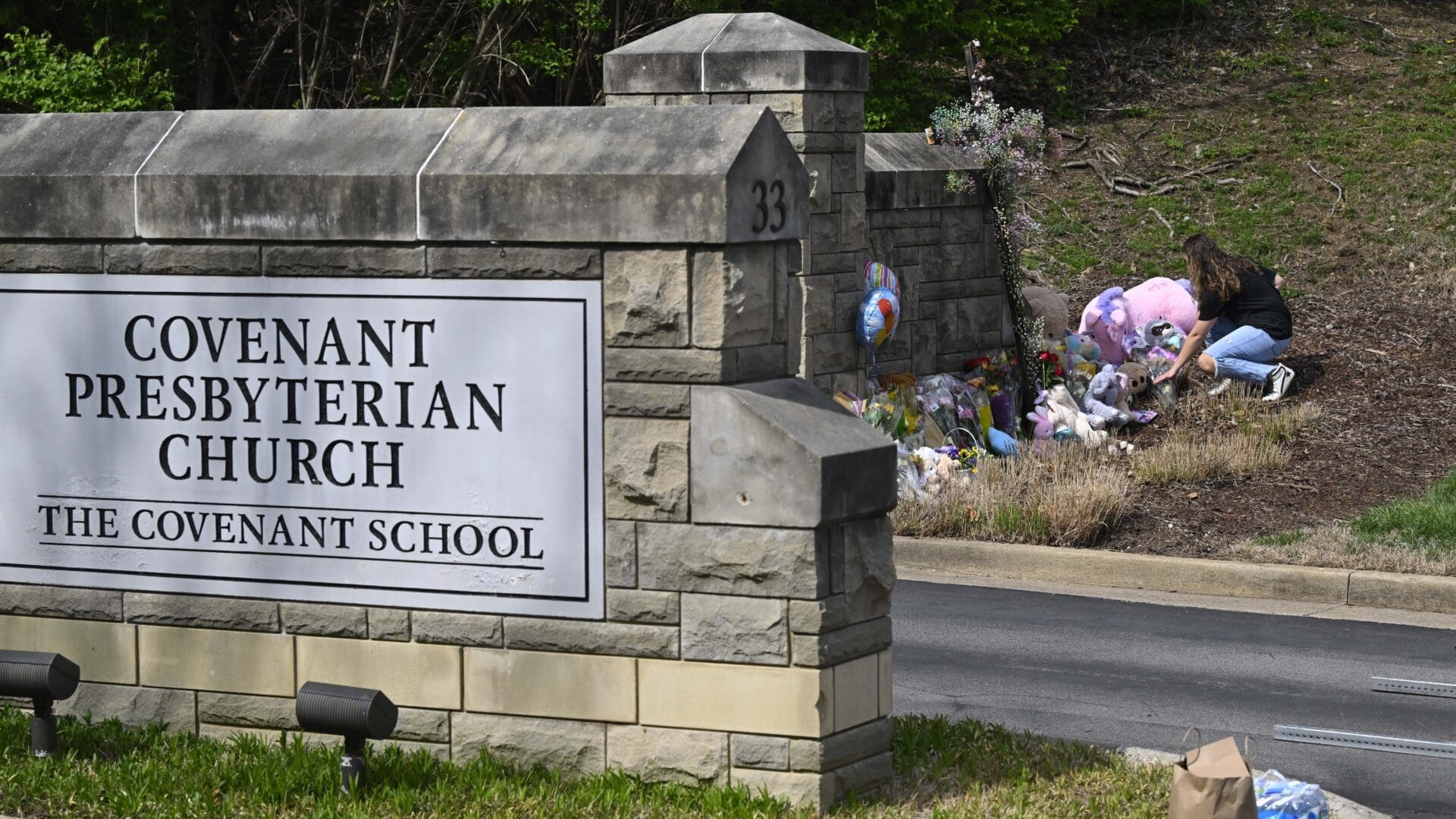You can learn a lot about a person—or a society—by observing how they behave in moments of crisis. Whenever individuals or collectives are suddenly forced to confront extreme and shocking circumstances, they tend to respond instinctively, doing away with careful planning. It is these raw displays of instinct that bring out the core values and attributes of a person or a group, allowing the rest of us to see them for what they are.
The terrible crisis that recently struck a Christian school in the US city of Nashville, Tennessee, is no different. On Monday, 27 March, transgender-identifying biological female Audrey Hale (28) executed an armed attack on The Covenant School, a private Christian educational institution for children ranging in age from preschool to 6th grade. Hale, who identified herself online as a transgender man with the name of Aiden, drove to the school and parked her car, took a brief pause to use Instagram, and then initiated a ‘carefully plotted attack’ targeting schoolchildren, teaching staff, and school counsellors. Six innocents were killed – three children aged 9, and three adults—before the madness was finally put to an end.
Harrowing bodycam footage released by Nashville police reveals how, in the final moments of Hale’s rampage, police officers Rex Englebert and Michael Collazo (among others) raced fearlessly into the building, risking their lives to do so, before confronting and destroying the threat. This is a far cry from the systemic failures seen last year in Uvalde, Texas, where at one point more than 300 law enforcement officers stood by as schoolchildren were shot and killed inside the school by an armed assailant. The comparison is an important one, as the memory of last year’s mass shooting is still fresh with Americans across the nation. But it is also an imperfect comparison because this attack, unlike the previous one, was motivated not by intrinsic evil or psychopathy, but by ideological grievances of a very specific nature.
Although Audrey Hale was not the first (and may not be the last) evil killer to target children in their own schools, she did break the mould in other ways. Hale is believed to be the first ‘transgender man’ to commit a mass shooting in the United States. Even more certain is that Hale was the first woman with a self-ascribed transgender identity to commit a terrorist-style armed attack against children and teachers in an American school. There are certainly other aspects of her background that are less unique—a documented history of mental illness, deep-seated personal grievances against the group targeted—and none of that is particularly surprising.
Danube Institute fellow Rod Dreher has written in detail about the manifold of motivations implicated in Hale’s egregious attack, but so long as Hale’s manifesto written in preparation for the attack remains under the lock and key of the FBI, much remains (and will remain) inconclusive. What we do know with certainty, though, is that Hale’s transgenderism, and her grievances against scholastic, religious, and familial institutions which she perceived to be opposed to that identity, formed a core part of the motivational bedrock underlying her decision to murder innocents in Nashville.
For a country like Hungary, where arguments against and in favour of gender ideology and transgender acceptance have been escalated to the level of a national referendum, what lessons might be learned here? What truths can we glean from the US response to this crisis?

Firstly, when viewing the ways in which US media have handled the killer’s identity (i.e. her name, background, and unfortunately also her ‘pronouns’) we see a picture of American society’s attitude toward gender ideology which appears to be, even on the institutional level, incoherent. Outwardly, the United States appears to be a country in which gender ideology, including transgenderism, is a fundamental expression of the inherent gendered condition of the immutable human ‘soul’. Yet even while American academics continue to debate over metaphysical interpretations of Thomas Aquinas in relation to gender identity (yes, really), US media institutions within which violating gender pronoun preferences is considered a fireable offense, are referring to Audrey Hale as a woman, with she/her pronouns, in violation of her self-identified trans-male nature. In other words, they negate her self-asserted ‘trans’ identity.
This has been discussed by European Conservative writer Tamás Orbán, who detailed the moral confusion amongst the American left and media institutions regarding the ethics of ‘deadnaming’ an evil child killer. If the epistemology and ethical framework that is used to justify gender ideology were so solid and grounded, then why does it appear to be collapsing in the face of a very simple stress test? The conclusion to be drawn here is that America’s institutions present themselves as having adopted a firm position with respect to gender ideology, while in reality, they have no understanding of, or adherence to, the ideology they ostensibly promote.
Nevertheless, the implications of America’s absence of coherence regarding the ethical and normative conduct for describing a transgender-identifying murderer are salient even beyond the US and its borders. Transgenderism, meaning the notion that there is a valid metaphysical category which individuals can belong to irrespective of their biological sex, is a recent phenomenon. Google Ngram data shows that, until very late in the 20th century, the word ‘transgender’ had virtually no significance in the entire corpus of English-language publications. At some point afterward, use of this term began to spike and thereafter exhibited exponential growth—a pattern that has persisted even into the 2020s.

It has long been argued that if a society accepts the proposition of gender identity, or transgender identities, as fully valid for individual identification purposes, then all problems will simply disappear. Yet in the United States, where President Joe Biden himself took to the stage in celebration of ‘International Transgender Visibility Day’ (in flagrant disregard of the children and adults shot dead by America’s first biologically female transgender mass murderer) we see that the embracing of tolerance and acceptance by a sitting head of state is still not enough. As documented by Andy Ngo, Audrey Hale believed in the existence of a ‘trans genocide’—a belief which may have played a role in her decision to commit mass murder against innocent civilians, young and old. If a sitting president of the United States who endorses transgender-identifying individuals as an ontological category, and supports their presence in the military, government, and society at large, could not dissuade Hale from believing what she believed or doing what she did, then why endorse these things at all?
If anything can be learned from this horrific school shooting, it is this: even if governments in North America or Europe go so far as to proclaim their acceptance of marginal groups or ideologies that exist on the fringe of society (whether based upon gender identity, religion, ethnicity, or something else), they may not be able to secure the harmonious outcome they seek to attain by doing so. Acceptance, a word we hear so often from journalists, protesters and politicians alike in Europe and the United States, may not be enough to avoid the kind of disaster that befell Nashville Tennessee last Monday.








